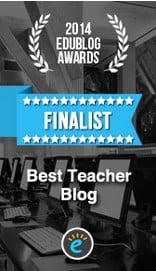Learning Vocabulary; How many…? and How…?
My upper-intermediate level students will be taking the level achievement summative test on Monday which will determine whether they are eligible for the next level in our program. When we had a chat about their strengths and weaknesses most of them said that they feared from their lack of vocabulary knowledge. I think that for most students learning vocabulary is a challenge.
How many words do L1 students know?
There are different estimates for this. According to Nagy and Anderson (1984 in Grabe 2006) L1 students encounter 88,000 word families in base word forms, inflectional and derivational affixes. Nation (2001) estimates that L1 learners know about 20,000 word families which roughly mean 40,000 words in an English L1 university setting.
How many words should an L2 English learner know?
Nation (2006 in Grabe, 2006) argues that L2 learners need to know about 4,000 word families which corresponds to nearly 10,000 independent word meanings
There are different estimates about how many words there are in English depending on the selected unit of analysis (Grabe, 2009). Some researchers claim if all the technical and scientific words used in English and names of things are considered then there are between one and two million words in English (Crystal, 1988). Grabe argues that there are about 110,000 words in common use.
Numbers, numbers numbers….It all comes down to how well each of these words needs to be known? What could be the best approaches for teaching vocabulary to L2 learners of English? How can we know that learning occurred?
Vocabulary teaching has always been a challenge and at my school together with my colleagues we think about these questions and experiment some teaching-learning techniques such as asking students to keep vocabulary journals, hand in written production which requires using newly learned words…etc. No perfect solutions for difficulties met still experimenting and still learning.
 Word Learning Techniques that Worked
Word Learning Techniques that Worked
I have tried some strategies and activities to encourage my students to acquire better recording and recalling of newly learned vocabulary. I would like to share some of them.
Personal Organizing
Personal organizing refers to asking students to make judgments about words. For example after we exploit a unit in our course book about global warming, I asked my students to look at their vocabulary notes and the lesson materials (handouts + course book) and make a list of the key words that they think they should learn. Afterwards, I draw a mind map on the board and wrote global warming at the heart of it. Then, I elicit other words from their list of key words that could complete the mind map in the sun ray effect. So, the task is grouping words under a category; causes , effects, what needs to be done (and they need to list the target vocabulary underneath each category; to ban, to take a step, take precautions,…etc.) . I think that this tasks works because it displays a useful and meaningful way of organizing the mental lexicon by building semantic mapping through networks and associations.
Cognitive Depth
I often provide students with vocabulary exercises in which they need to make further judgments about the newly learned words and use them in an appropriate context. I sometimes give sentences that exemplify the target words and ask follow up questions; “What is the word form of the word?”, “which word is the underlined word similar in meaning to”? Which of the following meanings of the given word (one word with several meanings) would complete the sentence best? Antonyms? Synonyms…etc.?
Affective Depth
Affective depth refers to making emotional judgments about the newly learned words to store and recall newly learned words more readily. (Think about students trying to memorize words-rote learning versus trying to associate some emotions). Sometimes I ask students to form small groups and discuss the words that we learned. Take the example course book unit on globalization. . I give my students some guiding questions that they need to discuss in their group and then report to us: “Which words in the unit represent globalization? Do these words evoke any pleasant or unpleasant associations?…etc. At first my students had difficult time understanding the rationale behind talking about the newly learned words. I explained that we are trying out some techniques to learn and recall words better. Later on it became routine and some students stated that it helped them. It was obviously more enjoyable and I overheard them sharing their own way and giving advice to each other about learning vocabulary.
Use it or lose it
I ask my students to bring their vocabulary notes/ journals/ notebooks into class every day and when we do an in or out class task I ask them (beg them) to use the newly learned words.
Repetition
I try to provide repetitions of encounter with a word. E.g. After seeing a model, students prepare vocabulary exercises. After I do the editing collaborative end product would be ready for use.
What happens in your class? How do you deal with vocabulary teaching? Which activities help students learn better?
References:
Grabe, W.(2009). Reading in a Second Language Moving From Theory to Practice, Cambridge University Press, New York.






Recent Comments